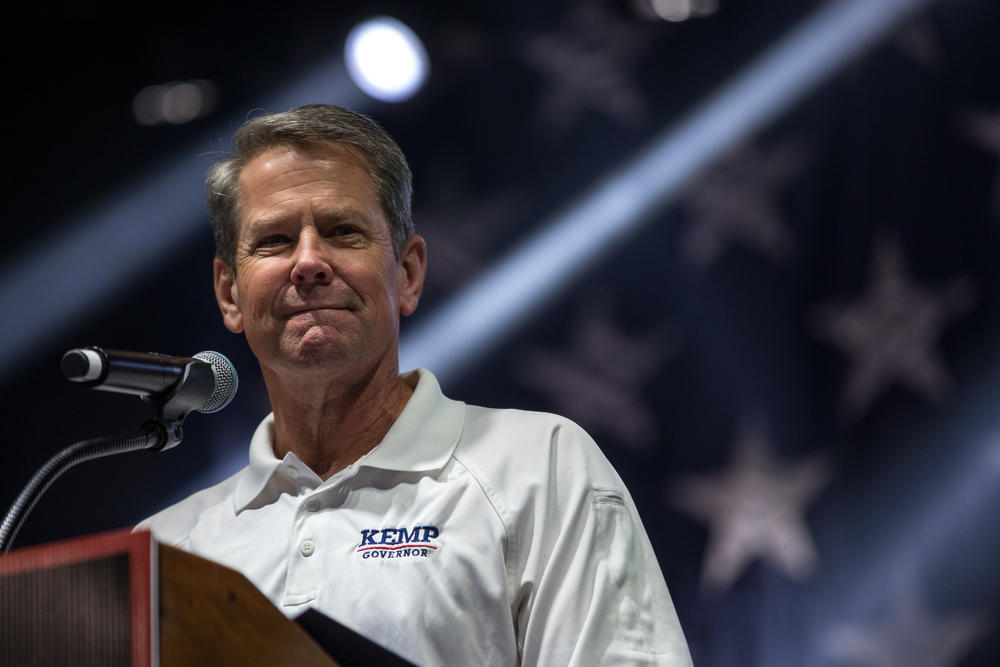
Caption
Gov. Brian Kemp kicks off his reelection campaign for 2022 in Perry, Ga., in 2021. On Jan. 12, 2022, Kemp unveiled a hefty new budget proposal: $1.6 billion in tax refunds after the state bolstered its surplus to record levels.
Credit: Riley Bunch/GPB News

